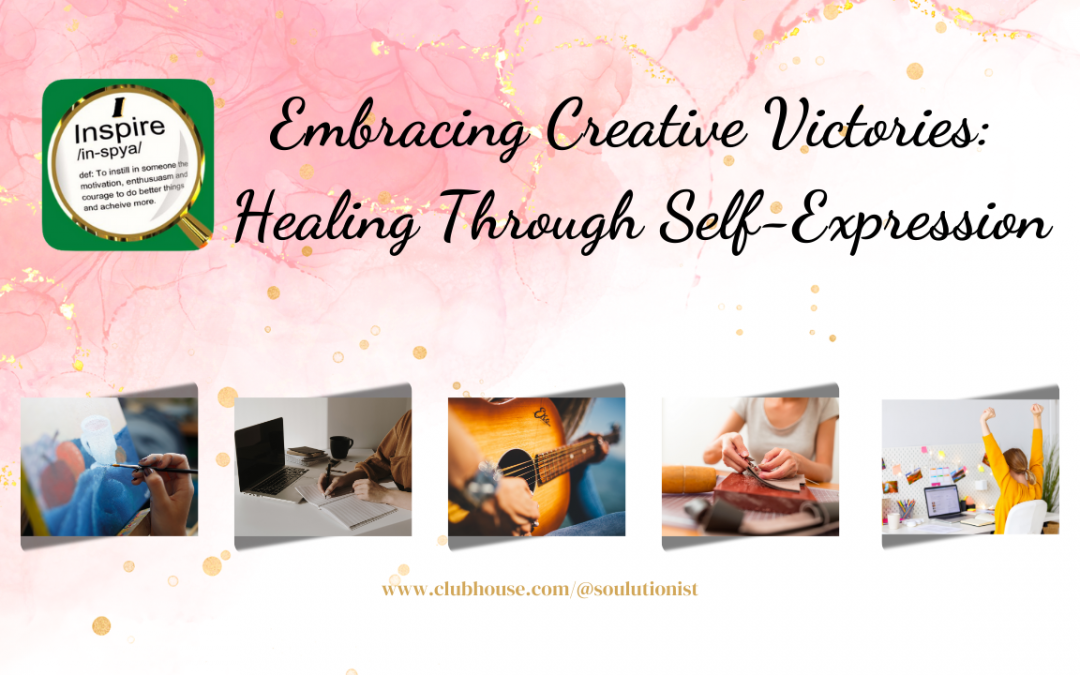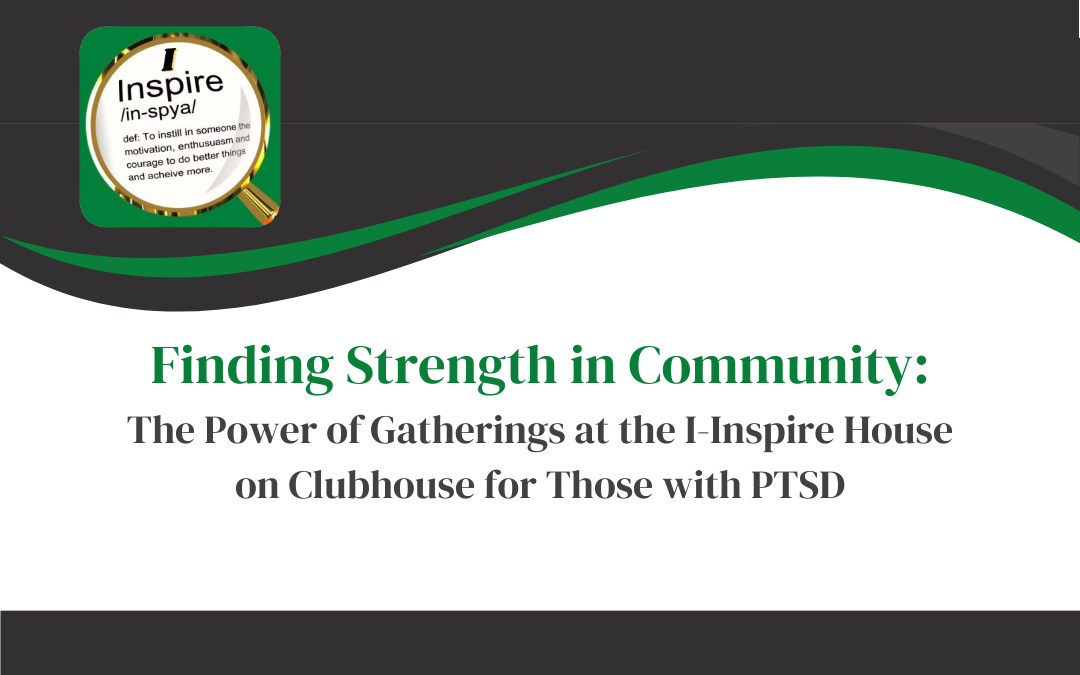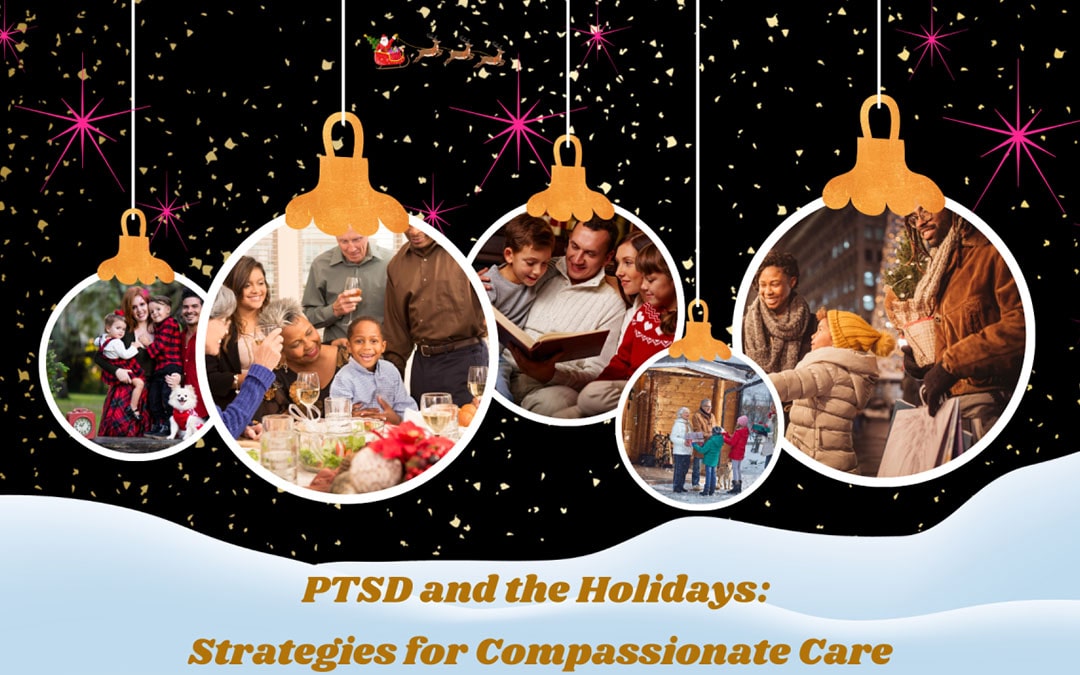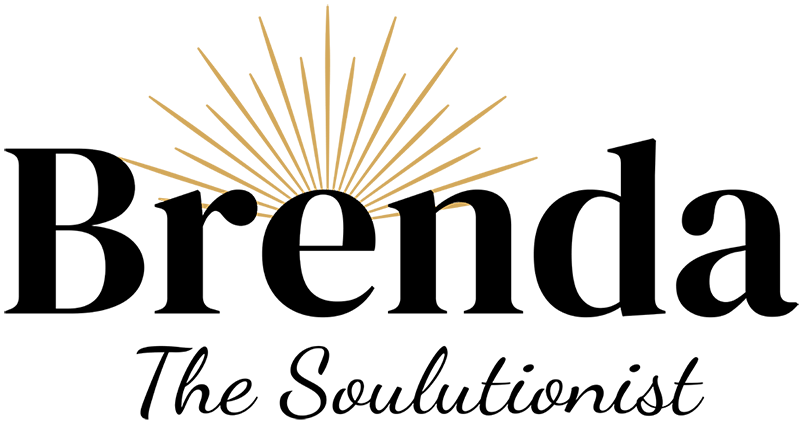
by Brenda The Soulutionist | May 26, 2024 | Mental Health, Veterans
Embracing Creative Victories: Healing Through Self-Expression
Every Sunday at 3:00 p.m. EST, I join the founder of the I-Inspire House, Pastor Jeff Moffett, and others as a moderator on Clubhouse. DISCLAIMER: WE ARE NOT CLINICIANS. We are veterans and fellow travelers on the journey to healing. Our group is open to all interested in a safe place and support. No trauma dumping allowed. Our weekly strong love talks about Post Traumatic Stress Disorder (PTSD) have been instrumental in my own journey to live my best life. Our topics vary, but they always foster a sense of community, a place where you can find understanding and support, encouraging and inspiring our participants and listeners to live fulfilled lives.
In the realm of healing and resilience, creativity serves as a powerful ally in the journey towards overcoming the challenges of PTSD. We have discovered amidst the shadows of isolation and withdrawal that a beacon of light exists that we call Creative Victories. This theme celebrates the transformative power of self-expression, offering a path to connection, growth, and healing within our tight-knit PTSD support group. Here are a few creative expressions we have discussed from time to time you may use to have creative victories in your own life.
Unleashing the Power of Creativity:
Painting Your Story:
One practical way to unleash the power of creativity is through the therapeutic art of painting. This activity allows you to visually express your emotions, memories, or aspirations. Use colors, shapes, and textures to convey your inner world and explore new dimensions of healing through artistic creation.
Writing Your Truth:
Pen down your thoughts, feelings, and experiences in a journal, poetry, or storytelling format. Writing offers a safe space to process emotions, reflect on insights, and give voice to the untold narratives within you. I always say, “The blank page holds no judgment.” If writing by hand is not your thing, grab your nearest digital device to speak or type your truth.
Playing the Melodies of Resilience:
Harness the healing melodies of music by playing an instrument, singing, or listening to uplifting tunes. One of the longest-running houses on Clubhouse is the I-Inspire Melodies to Meditate, Relax and Heal. It operates twenty-four hours a day. Let the rhythm and harmony guide you through moments of introspection, release, and empowerment.
Crafting Your Vision:
Explore the world of DIY crafts, knitting, or sculpting to engage in tactile self-expression. Through the act of crafting, you can create physical manifestations of your inner strength, beauty, and resilience. Each creation is not just a piece of art, but a testament to your personal growth and journey towards healing, a reminder of how far you’ve come and the potential for even more growth and healing. Each step is a victory, a small win that brings you closer to your ultimate goal of healing.
Celebrating Small Wins:
In our support group, every creative endeavor is a victory worth celebrating, no matter how small. Share your artistic pursuits with fellow members, bask in the collective encouragement, and revel in the joy of creative expression. Whether you’re completing a painting, writing a poem, learning a new chord on the guitar, or crafting a handmade gift, every moment of creative triumph is a stepping stone toward healing.
Healing Through Recognition:
As we focus on our Creative Victories, it’s crucial to remember the importance of self-recognition. Take a moment to acknowledge your progress, honor your resilience, and celebrate the steps that lead you on the path to healing, no matter how small. By embracing creativity, sharing our victories, and nurturing self-compassion, we empower ourselves, taking control of our healing journey. We pave the way for profound healing and transformation within ourselves and our community.
Join us in the spirit of Creative Victories as we journey together toward healing, connection, and growth. Let creativity be our guiding light, self-expression our sanctuary, and each small win a testament to the resilience within us. Together, we rise, shine, and celebrate the beauty of healing through the transformative power of creativity. If you’re ready to start your own journey of healing and resilience through creativity, we invite you to share your thoughts and experiences in our next Clubhouse session.

by Brenda The Soulutionist | May 5, 2024 | Mental Health, Veterans
Finding Strength in Community: The Power of Gatherings at the I-Inspire House on Clubhouse for Those with PTSD
Living with PTSD can be a challenging and isolating experience, but finding a supportive community can make all the difference. At the I-Inspire House on Clubhouse, individuals with PTSD have found a safe space to come together. Founded by Pastor Jeff Moffett, PJ, as we are all loving, call him and his crew of moderators (I am one), meet every Sunday at 3:00 p.m. EST to connect, share their stories, and support one another on their journey toward healing. In this blog post, we will explore the power of community when living with PTSD and how gatherings like those at I-Inspire House, where they have Strong Love Talks About PTSD, can provide invaluable support and strength.
- A Sense of Belonging: One of the most powerful aspects of gathering at I-Inspire House is the participants’ sense of belonging. Many individuals with PTSD struggle with feelings of isolation and alienation, but coming together in a group of people who genuinely understand what they are going through can be incredibly validating. Knowing that you are not alone in your struggles and that others share similar experiences can provide a sense of comfort and connection essential for healing.
- Shared Understanding: Another benefit of gathering at I-Inspire House is the shared understanding among participants. Living with PTSD can be challenging to explain to those who have not experienced it themselves. Still, within this community, there is no need to explain or justify feelings and behaviors. Everyone understands each other deeply, creating a space where individuals can be themselves without fear of judgment or misunderstanding.
- Supportive Environment: The gatherings at I-Inspire House provide a supportive environment where individuals can feel safe to express their thoughts and emotions without fear of criticism or rejection. Having a place where you can openly discuss your struggles, fears, and triumphs with others who genuinely care about your well-being can be incredibly empowering. However, trauma dumping is not allowed. This supportive network helps individuals feel validated, heard, and understood in ways that may not be possible in other settings.
- Learning from Each Other: In addition to providing emotional support, gatherings at I-Inspire House also offer opportunities to learn from one another’s experiences. Sharing coping strategies, resources, and insights gained from personal journeys can help individuals navigate their paths toward healing more effectively. By coming together as a community, participants can draw strength from each other’s resilience and wisdom, creating a collective knowledge base that benefits everyone involved.
- Building Resilience: Ultimately, the power of community at I-Inspire House lies in its ability to help individuals build resilience in the face of trauma and adversity. By connecting with others who understand their struggles, sharing their stories openly, receiving support and validation, learning from each other’s experiences, and growing together as a cohesive group, participants are able to cultivate inner strength that helps them navigate life’s challenges more effectively.
Conclusion:
The power of community when living with PTSD cannot be understated. Gathering at places like I-Inspire House on Clubhouse every Sunday at 3:00 p.m. EST provides individuals with a sense of belonging, shared understanding, emotional support, and opportunities for learning from one another’s experiences and ultimately helping them build resilience in the face of trauma and adversity. If you are struggling with PTSD or know someone who is seeking support, consider joining a supportive community like I-Inspire House on Clubhouse. Follow me on Clubhouse and scroll down to join the I-Inspire House, where you can find strength in numbers as you navigate your journey toward healing. Be Blessed
With Gratitude
Brenda The Soulutionist

by Brenda The Soulutionist | Nov 20, 2023 | Mental Health, Veterans
The holiday season can bring joy and happiness, but for individuals like me with Post-Traumatic Stress Disorder (PTSD), it can also be a time of increased stress and triggers. Having strategies for compassionate care for yourself and others can ease tensions that often occur during the holidays. I am not a doctor; you should seek a professional for medical and mental health advice. However, when family, friends, and co-workers educate themselves, they can become a fantastic support system and reduce holiday-related stress for those of us dealing with PTSD in addition to our professional support teams.
Taking time to understand the unique challenges faced by those with PTSD during this time is crucial. In this article, we will explore different factors I have experienced since my PTSD diagnosis and provide ten actionable and positive mental health tips to help individuals manage their stress levels effectively. I have used each of them occasionally to enjoy the holiday season with those I care about. Remember, you are not alone, and by taking proactive steps, you can navigate the holiday season with confidence and self-care if you keep an open mind and allow others to assist you as well.
1. Educate Yourself and Others: Learn about PTSD and its triggers. Understand that holiday-related stress may intensify symptoms and identify specific triggers that affect you personally. Please do not assume the people in your circle understand the effects of PTSD and how it affects you. Create learning opportunities before the holidays that will enhance your relationships and reduce everyone’s stress.
2. Seek Support: Ask for and seek support. It is a sign of strength. Connect with trusted friends, family members, or support groups who can offer understanding and empathy. I am a member of the I-Inspire House on Clubhouse, which meets every Sunday at 3:00 pm EST. I can share and learn from others in a safe environment. Sharing your experiences with others who have similar struggles can provide validation and comfort.
3. Set Boundaries: Prioritize your well-being by setting clear boundaries. Communicate your needs and limitations to loved ones, letting them know what you are comfortable with during social gatherings or events. Allow them to set boundaries as well. Everyone may not be prepared to provide the support you require.
4. Practice Self-Care: Incorporate self-care activities into your routine. Engage in activities that bring you joy and relaxation, such as reading, listening to music, taking walks in nature, or practicing mindfulness meditation.
5. Deep Breathing Exercises: When feeling overwhelmed, practice deep breathing exercises. Take slow, deep breaths in through your nose, hold for a few seconds, and then exhale slowly through your mouth. This technique can help calm your nervous system and reduce anxiety.
6. Avoid Triggers: Identify potential triggers and plan accordingly. If certain situations or environments exacerbate your symptoms, consider avoiding or modifying them to minimize stress when those around you know your triggers; they can be allies in helping you manage them.
7. Create a Professional Support Network: Reach out to mental health professionals experienced in working with PTSD patients. They can provide guidance on coping strategies and help develop a personalized plan to manage holiday-related stress.
8. Prioritize Sleep: Aim for consistent and quality sleep. Establish a relaxing bedtime routine, create a comfortable sleep environment, and avoid stimulants before bed. Sufficient rest can significantly impact your overall well-being and ability to manage stress.
9. Practice Mindfulness: Stay present in the moment and practice mindfulness techniques. Engage your senses, focus on your surroundings, and engage in activities that anchor you to the present, such as deep breathing or grounding exercises.
10. Maintain Healthy Habits: Focus on maintaining a balanced lifestyle. Incorporate regular physical exercise, eat nutritious meals, and avoid excessive alcohol or substance use, as they can worsen symptoms and disrupt sleep patterns.
Remember, healing takes time, and being kind to yourself and those wanting to support you is essential. Asking for help is not a weakness. Advocating for yourself is a sign of strength. Strategies for compassionate care may require additional support; consider contacting professional resources like therapists, helplines, or organizations specializing in PTSD. Help is available twenty-four hours a day. If at any time you feel like harming yourself, call the National Crisis Hotline at 988 – Veterans Press 1. You are not alone; there is hope for a brighter holiday season and future.



